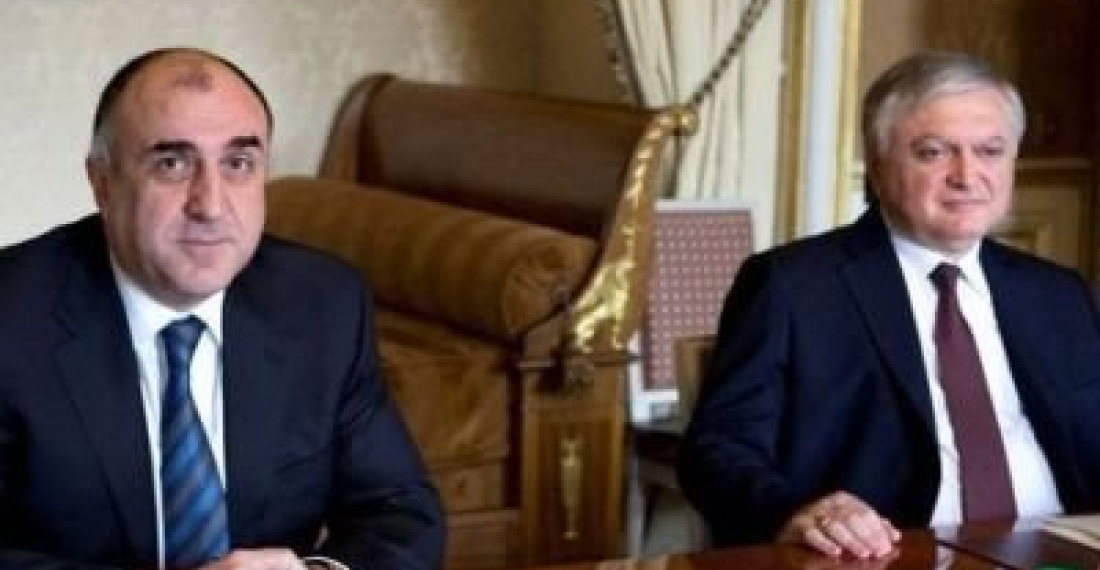After a hiatus of many months Armenia and Azerbaijan are talking again about a settlement of the Karabakh conflict. Diplomats chairing the OSCE Minsk Process called on Armenia and Azerbaijan "to demonstrate greater flexibility and to resume comprehensive negotiations".
The Foreign Minister of Armenia Edward Nalbandian and the Foreign Minister of Azerbaijan Elmar Mammadyarov, on Thursday, 16 February met first separately and then jointly with the co-Chairmen of the OSCE Minsk Process, Ambassadors Igor Popov of the Russian Federation, Stephane Visconti of France and Richard Hoagland of the United States of America. The Personal Representative of the OSCE Chairperson-in-Office, Ambassador Andrzej Kasprzyk, also participated in the meetings, which took place in Munich on the margins of the Munich Security Conference.
A statement issued in Vienna, and posted on the OSCE website said that the Co-Chairs discussed with the Ministers the current situation along the Line of Contact and the Armenia–Azerbaijan border. The Co-Chairs reiterated that there is no alternative to a peaceful solution to the conflict and that war is not an option, and called upon the sides to exercise restraint on the terrain as well as in their public communications and to prepare their population for peace and not for war. The Co-Chairs also urged the Sides to adhere strictly to the 1994/95 ceasefire agreements that constitute the foundation of the cessation of hostilities. The Co-Chairs recalled the May 2011 joint statements of their Presidents in Deauville emphasizing that the use of force would only bring more suffering and devastation and would be condemned by the international community. The Co-Chairs shared their views with the Sides on the steps which should be taken toward implementing decisions from the 2016 Summits in Vienna and St. Petersburg aimed at stabilizing the situation in the conflict zone."
The statement added that "the Co-Chairs stressed to the Ministers the need to demonstrate greater flexibility and to resume comprehensive negotiations on reaching a lasting settlement as soon as possible."
In their statement the diplomats touched on a number of issues. They"recognized that the Armenian authorities’ recent decision to return the body of an Azerbaijani serviceman was a helpful humanitarian gesture. The two Ministers reiterated their commitment to strictly observe their international humanitarian obligations including those of the Astrakhan Declaration of October 2010 issued by the Presidents of Armenia, Azerbaijan, and the Russian Federation."
The statement added that "the Co-Chairs are aware that a so-called constitutional referendum is scheduled to take place in Nagorno-Karabakh on February 20, 2017. Although the Co-Chairs note that the de-facto Nagorno-Karabakh authorities view the use of such a procedure as an effort to organize the public life of their population, they underscore again that no countries, including Armenia and Azerbaijan, recognize Nagorno-Karabakh as an independent and sovereign state. Accordingly, the Co-Chairs do not accept the results of the referendum on February 20 as affecting the legal status of Nagorno-Karabakh. The Co-Chairs also stress that the results in no way prejudge the final status of Nagorno-Karabakh or the outcome of the ongoing negotiations to bring a lasting and peaceful settlement to the Nagorno-Karabakh conflict."
The Co-Chairs plan to travel to the region in March.
source: commonspace.eu
photo: The Foreign Ministers of Armenia and Azerbaijan (archive picture)







